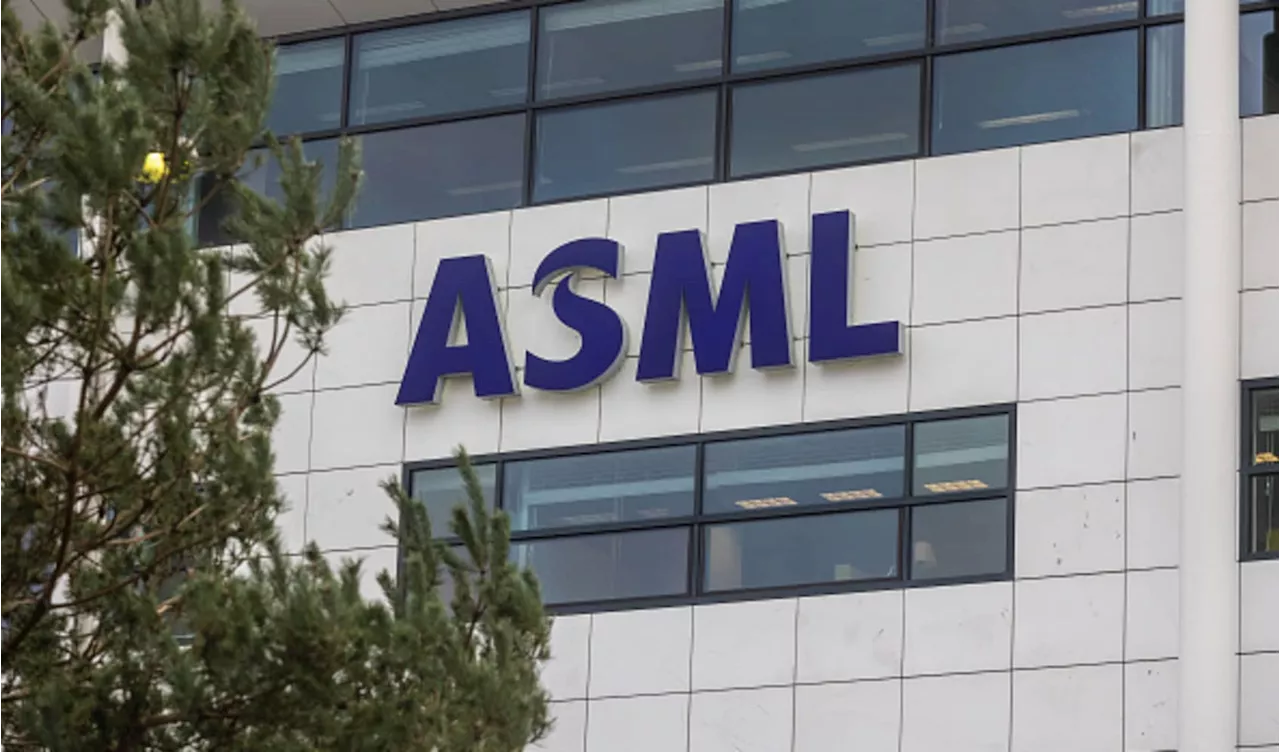ASML reports robust fourth-quarter net bookings, exceeding expectations despite concerns raised by DeepSeek's affordable AI model. CEO Fouquet remains optimistic, predicting increased chip demand driven by wider AI adoption.
ASML reported a significant surge in fourth-quarter net bookings, reaching 7.09 billion euros, a remarkable 169% increase compared to the previous quarter. This strong performance indicates sustained high demand for ASML 's advanced chipmaking equipment, even amidst concerns raised by DeepSeek's low-cost AI model regarding AI spending trends. Earlier this week, ASML experienced losses during a widespread tech market downturn triggered by the launch of DeepSeek's R1 reasoning model.
This Chinese AI startup's model claims to outperform OpenAI in both cost and performance, prompting questions about the substantial investments made by leading AI players like OpenAI and Microsoft in Nvidia GPUs, essential for training and running advanced AI models. There were concerns that this development could potentially impact the demand for ASML's high-precision extreme ultraviolet (EUV) machines, which are crucial for manufacturing the most sophisticated microchips. Notably, EUV tools contributed 3 billion euros to ASML's fourth-quarter net bookings.Despite these concerns, ASML CEO Christophe Fouquet expressed optimism about the emergence of cost-effective AI models like DeepSeek's R1. He believes this trend will drive increased demand for semiconductors rather than a decrease. Fouquet stated that a lower cost of AI could lead to more applications, ultimately resulting in higher demand for chips over time. He also emphasized that ASML has not observed any signs of a slowdown in demand for AI-specific chips. While acknowledging the industry buzz surrounding DeepSeek, Fouquet stated that ASML has not received any inquiries from customers regarding the potential impact of the Chinese firm's model on chip demand. Fouquet further anticipates a shift in demand dynamics within China in 2025. Over the past two years, ASML witnessed a surge in demand for its chipmaking tools in China as domestic firms sought to build up their inventories in anticipation of U.S. export restrictions on advanced semiconductor equipment. However, this surge has since subsided, according to Fouquet, who expects a more balanced demand ratio in China compared to other markets this year
ASML Deepseek AI Chip Demand EUV Semiconductors China Nvidia Openai Microsoft
United States Latest News, United States Headlines
Similar News:You can also read news stories similar to this one that we have collected from other news sources.
 DeepSeek vs. ChatGPT: Hands On With DeepSeek’s R1 ChatbotDeekSeek’s chatbot with the R1 model is a stunning release from the Chinese startup. While it’s an innovation in training efficiency, hallucinations still run rampant.
DeepSeek vs. ChatGPT: Hands On With DeepSeek’s R1 ChatbotDeekSeek’s chatbot with the R1 model is a stunning release from the Chinese startup. While it’s an innovation in training efficiency, hallucinations still run rampant.
Read more »
 China: AI’s Sputnik moment? A short Q and A on DeepSeekOn 20 January the Chinese start-up DeepSeek released its AI model DeepSeek-R1.
China: AI’s Sputnik moment? A short Q and A on DeepSeekOn 20 January the Chinese start-up DeepSeek released its AI model DeepSeek-R1.
Read more »
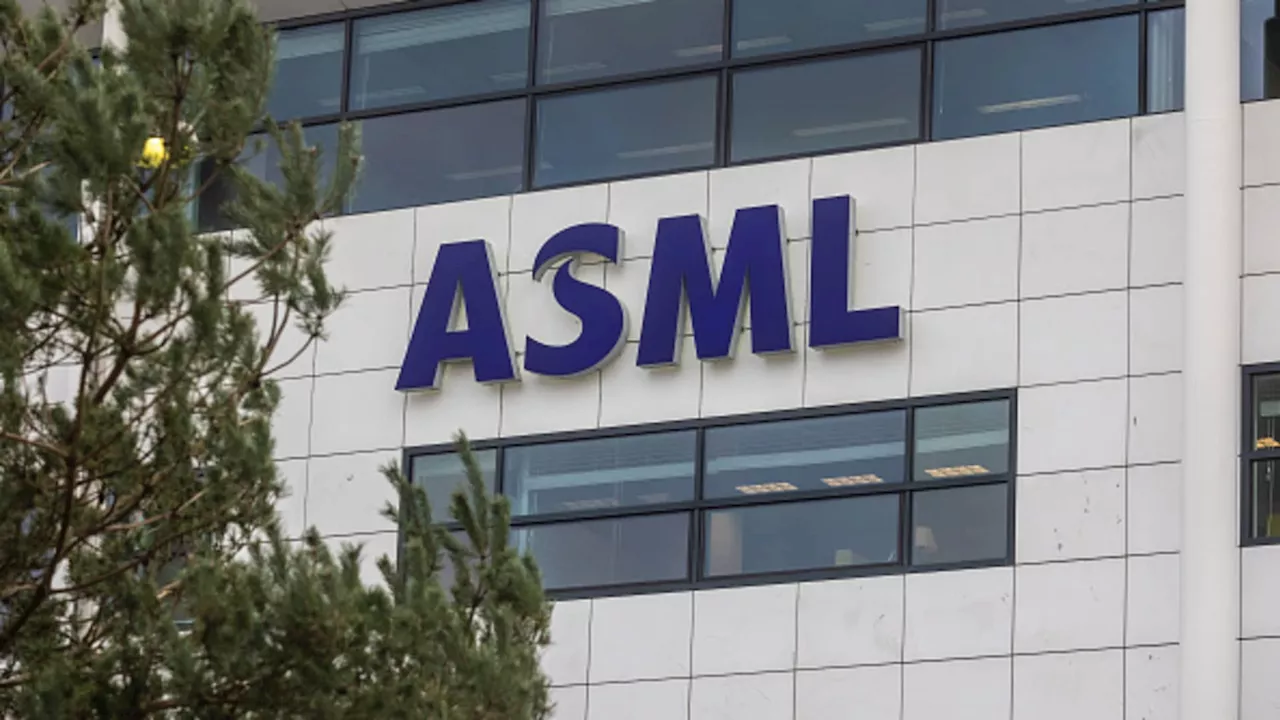 ASML's Strong Chip Demand Soars Despite AI Spending ConcernsASML Holding NV reported a significant jump in fourth-quarter net bookings, demonstrating continued strong demand for its advanced chipmaking equipment. The company's results come amidst concerns raised by DeepSeek's low-cost AI model regarding potential reductions in AI spending.
ASML's Strong Chip Demand Soars Despite AI Spending ConcernsASML Holding NV reported a significant jump in fourth-quarter net bookings, demonstrating continued strong demand for its advanced chipmaking equipment. The company's results come amidst concerns raised by DeepSeek's low-cost AI model regarding potential reductions in AI spending.
Read more »
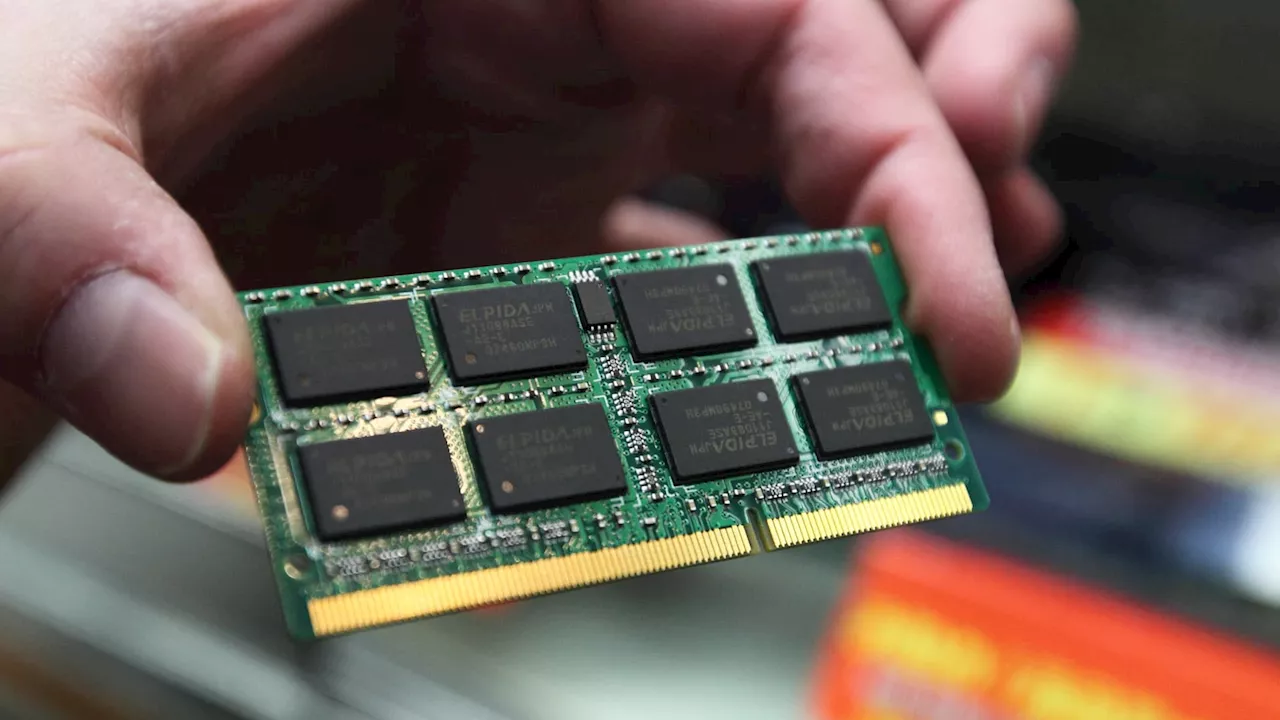 Japan chip stocks extend losses as DeepSeek worries fuel Wall Street tech routJapan's chip-related shares extended declines for a second day after DeepSeek triggered concerns over competitiveness in the artificial intelligence sector.
Japan chip stocks extend losses as DeepSeek worries fuel Wall Street tech routJapan's chip-related shares extended declines for a second day after DeepSeek triggered concerns over competitiveness in the artificial intelligence sector.
Read more »
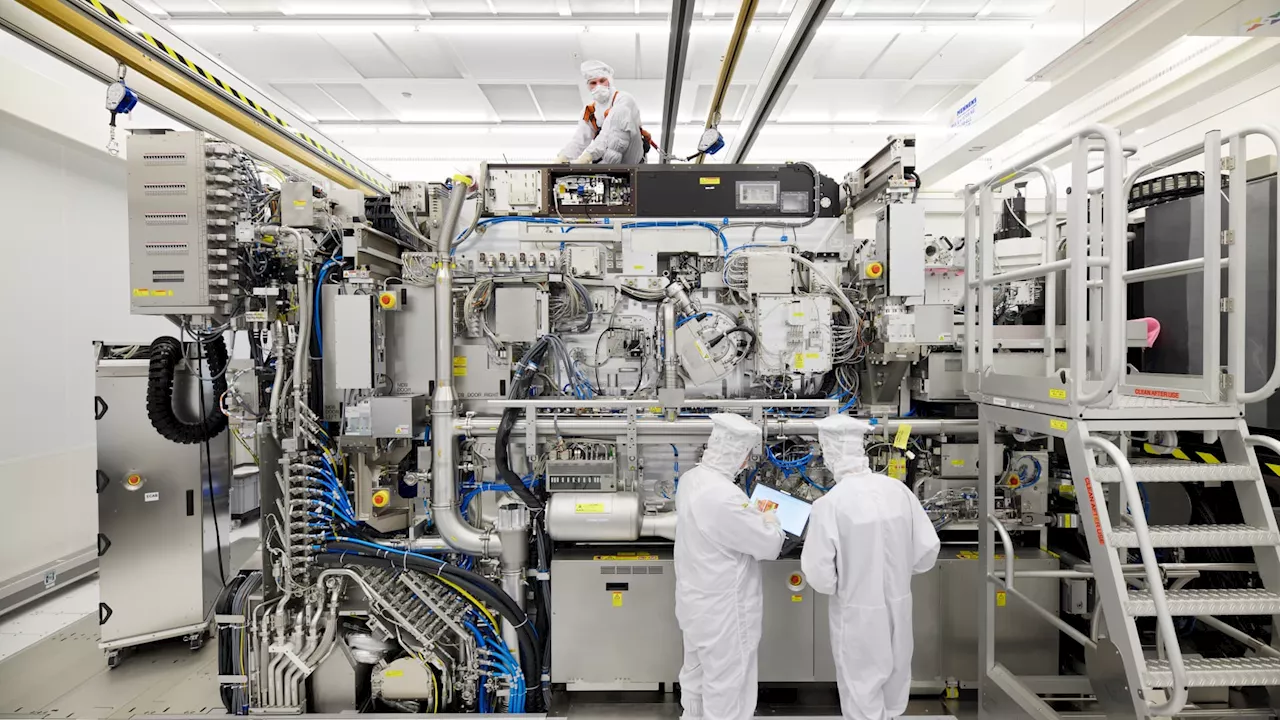 European Chip Stocks Could Benefit From Rise of Chinese AI Model DeepSeekAnalysts predict European semiconductor companies like ASML, ASMI, and VAT Group could see increased demand due to the widespread adoption of DeepSeek, a cost-effective AI model developed in China. While investors worry about DeepSeek's impact on Western tech giants like Nvidia, Microsoft, Amazon, and Google, JPMorgan analysts argue that European chip suppliers profit from manufacturing volume growth, which DeepSeek's potential deployment on consumer devices could drive.
European Chip Stocks Could Benefit From Rise of Chinese AI Model DeepSeekAnalysts predict European semiconductor companies like ASML, ASMI, and VAT Group could see increased demand due to the widespread adoption of DeepSeek, a cost-effective AI model developed in China. While investors worry about DeepSeek's impact on Western tech giants like Nvidia, Microsoft, Amazon, and Google, JPMorgan analysts argue that European chip suppliers profit from manufacturing volume growth, which DeepSeek's potential deployment on consumer devices could drive.
Read more »
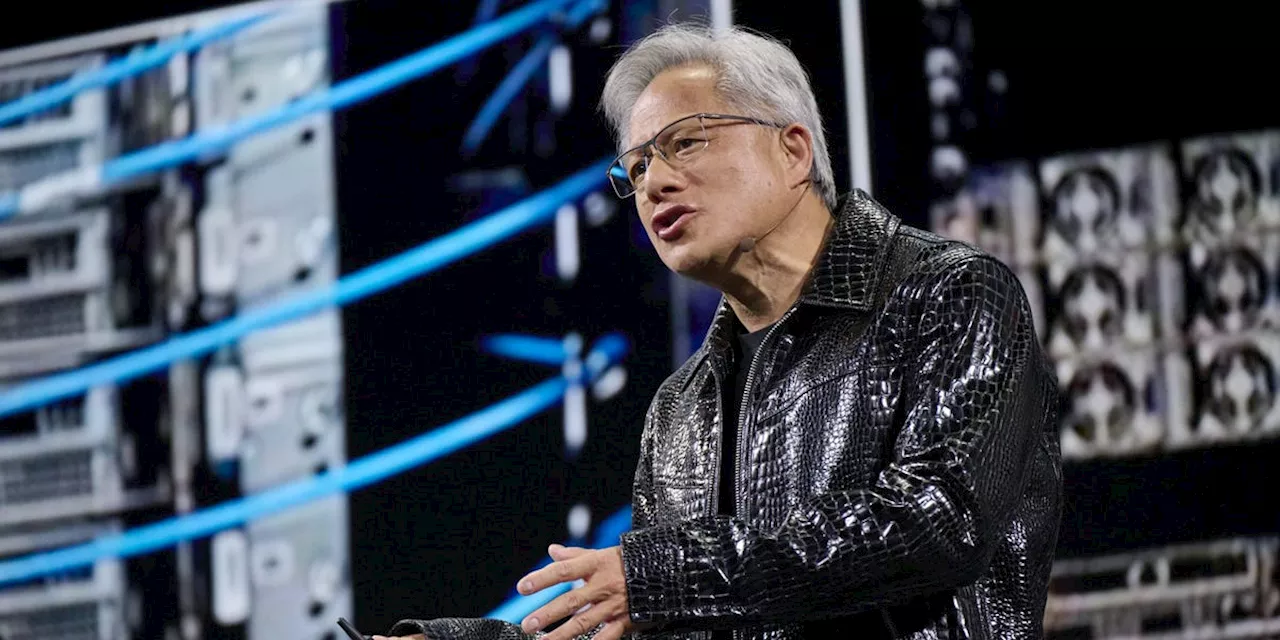 DeepSeek's Efficient AI Model Sparks Market Turmoil and Debate Over Chip DemandThe launch of DeepSeek's efficient AI model has triggered a market sell-off in semiconductor companies, raising questions about the future of AI infrastructure spending. While some investors fear a decline in demand for advanced chips, others point to the Jevons Paradox, arguing that increased efficiency will drive higher AI adoption and ultimately boost chip demand.
DeepSeek's Efficient AI Model Sparks Market Turmoil and Debate Over Chip DemandThe launch of DeepSeek's efficient AI model has triggered a market sell-off in semiconductor companies, raising questions about the future of AI infrastructure spending. While some investors fear a decline in demand for advanced chips, others point to the Jevons Paradox, arguing that increased efficiency will drive higher AI adoption and ultimately boost chip demand.
Read more »
